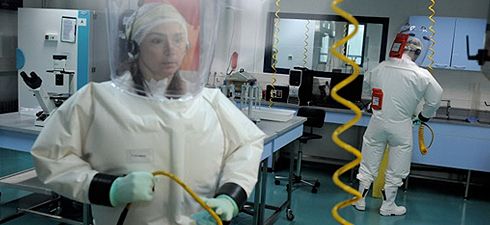70% of the active population was to be gainfully employed by now, research spending increased to 3% of GDP, economic growth to 3% p.a.: those were the main targets of the Lisbon Strategy launched back in the year 2000 – with ten years to achieve them. Now time’s about up and the grand European undertaking is about to culminate in a washout. Not the slightest trace of that knowledge-based economy that was supposed to become “the most dynamic and competitive in the world” by 2010. In ten years, employment has increased by a little less than 4 percentage points to plateau at an average of under 66%. Spending on research and development comes to slightly over half the target level and still falls far short of the figures of our main global rivals. The growth rate, dragged down by the crisis, has dropped to an average of 0.8% - with a devastating impact on unemployment, which had shrunk from 12% to 7% since 2000, but which is ballooning again to roughly 10% in the wake of the recession.
What is to be done? Well, there’s no point in flagellating ourselves. The age of optimism, fuelled by unassailable accomplishments at the beginning of the century like the birth of the single market and the euro, is now history. Now we march to the tune of realism. The world has changed, globalisation is gaining ground. What’s worse, it is China, to everyone’s surprise, that has achieved what Europe set out to do. But Europe hasn’t thrown in the towel. The new totem has no name, not even that of the Portuguese capital. This time around it’s a number: “2020”, perhaps in a bid to rival "1992", the erstwhile slogan of the single market. Now that the first ten-year plan has flopped, we are trying to map out a new one. The deliberations between the 27 member states started in November and will conclude in mid-January, after which European leaders will convene in Brussels on 11 January for a preliminary informal meeting to appraise a tentative draft of the Commission’s proposals. A follow-up summit in March will set out a concrete strategy to be submitted to the finance ministers. So it will be up to the European Council in June to rubber-stamp the 2020 plan.
An error not to be repeated
It won’t be a revolution. More of an updating and rescheduling of the targets, whilst searching within the EU for “new sources of growth capable of creating jobs lost to the recession” and, outside the EU, for ways to take advantage of globalisation and interdependence between nations. And all of that in a markedly tougher context than in 2000, given the tighter budgetary constraints and aggravated social problems facing a growing European population. According to a tentative EU document, the strategy will lay down three priorities: knowledge, i.e. education, research and the digital economy with a view to fuelling growth carried by high added-value innovations; “flexicurity”, entrepreneurial spirit and lifelong learning to stimulate creativity and maintain the social equilibrium; and a greener, more competitive and integrated economy to boost productivity and efficiency at every level, from energy to transportation. Plus a qualitative improvement in public spending. If Lisbon came a cropper, it was because the method was wrong: the objectives were right, but not binding, and left to the goodwill of national governments. Will the new “EU 2020 strategy” succeed in avoiding the same mistake? Many don’t think so. There are, at present, too many nationalisms in Europe. And if that’s how it’s going to be, the whole exercise, whether couched in old terms or new, is once again liable to prove much ado about nothing, or next to nothing.
OPINION
Unrealistic master plan
“EU president without real power,” is how Warsaw daily Dziennik Gazeta Prawna sees the ambitious programme of reforms EU president Herman Van Rompuy is presenting at the 11 February EU summit. They call for substantial changes to the education system, downsizing of employment security guarantees as well as promotion of environment friendly technologies. Should “Europe 2020” fail, it will be the end of the European social model, argues van Rompuy. How can this be prevented? Firstly by adopting a single economic policy on economic issues and secondly by holding member states accountable for their successes and failures in the programme’s implementation. “The crisis has made EU leaders realise they are in the same boat, so if Greece sinks, the whole eurozone may go down too”, says Ann Mettler, Executive Director of the Lisbon Council.
Member states are sceptical, however. “Nobody will accept the introduction of fines for failing to implement Van Rompuy’s programme, says Mikołaj Dowgielewicz, European Affairs Minister who also thinks there is no chance of establishing an EU economic government either. “The competences of the European Commission and European Central Bank are clearly marked, any changes are unrealistic”, points out Dowgielewicz. Similar objections among politicians in 27 member states practically rule out success for the Van Rompuy plan. “It will be the first proof that EU leaders do not really count on the president”, concludes the Polish daily.
Was this article useful? If so we are delighted!
It is freely available because we believe that the right to free and independent information is essential for democracy. But this right is not guaranteed forever, and independence comes at a cost. We need your support in order to continue publishing independent, multilingual news for all Europeans.
Discover our subscription offers and their exclusive benefits and become a member of our community now!












